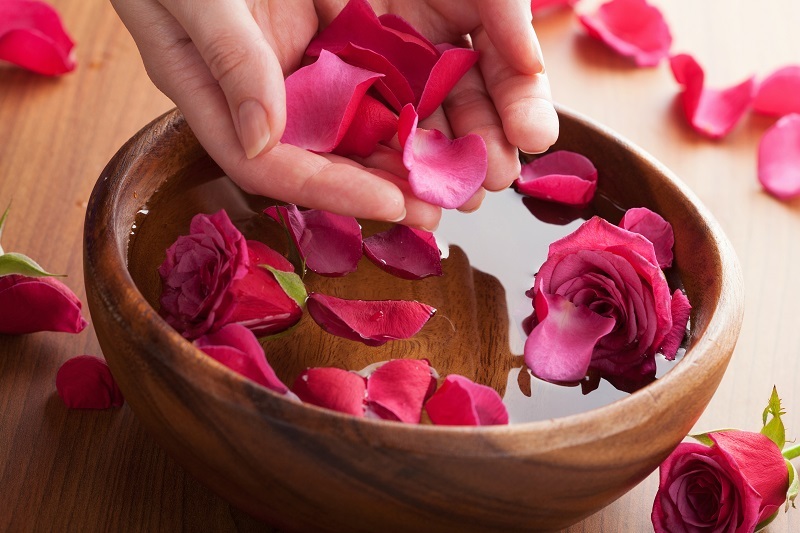Your Birth Flower and Its Telltale Insights Into Your Character
Posted on 26/08/2025
Your Birth Flower and Its Telltale Insights Into Your Character
Have you ever wondered about the significance of your birth flower? Just like birthstones and zodiac signs, birth flowers hold a deeper meaning and can offer unique glimpses into your personality and character traits. Flowers have long been intertwined with culture, symbolism, and human emotion. In this enriching and SEO-optimized guide, we'll explore the fascinating world of birth flowers and unravel what your birth flower says about you.
Understanding the Language of Birth Flowers
Before diving into individual flowers, it is essential to understand why birth flowers are significant. The tradition dates back to at least the Roman Empire, where people believed that specific flowers were tied to different months and had mystical properties. The Victorians further popularized the idea through "floriography", the language of flowers, assigning meanings and emotions to various blooms. Today, your birth flower not only brightens your special month but can also highlight key aspects of your character.

Birth Flowers by Month: Traits and Symbolic Insights
Below, you'll find a comprehensive guide to each month's birth flower, packed with details about what each blossom reveals about your personality. Let's journey through the calendar and uncover your petal-powered profile!
January: Carnation & Snowdrop
- Carnation: Known for their resilience and long-lasting freshness, carnations symbolize love, fascination, and distinction. If your birthday is in January, you likely possess a strong will, steady loyalty, and the ability to bring comfort to others. You're admired for your dependability and classic style.
- Snowdrop: The delicate snowdrop stands for hope and rebirth. People with the snowdrop as their birth flower are often optimistic and gentle, bringing hope even in challenging times.
February: Violet & Primrose
- Violet: Symbolizing modesty, faithfulness, and humility, violets indicate a sensitive, thoughtful nature. If you're born in February, you're likely intuitive, loyal, and quietly charming.
- Primrose: Associated with young love and devotion, primrose personalities are devoted friends who cherish deep, meaningful relationships.
March: Daffodil
- Daffodil: These cheerful yellow blooms represent new beginnings, happiness, and optimism. March-born individuals are hopeful, enthusiastic, and bring positivity wherever they go. They're natural motivators who help others embrace change.
April: Daisy & Sweet Pea
- Daisy: Daisies signify innocence, purity, and loyal love. If daisy is your birth flower, you're youthful at heart, honest, and a devoted friend. You value joy and authenticity.
- Sweet Pea: Sweet peas express gratitude and blissful pleasure. April-born individuals might be congenial, expressive, and delight in life's little moments.
May: Lily of the Valley & Hawthorn
- Lily of the Valley: Representing humility, sweetness, and a return to happiness, this flower suggests a gentle spirit and a caring, nurturing disposition.
- Hawthorn: With its association to hope and supreme happiness, hawthorn reflects optimism and a zest for life.
June: Rose & Honeysuckle
- Rose: Universally linked to love and beauty, roses imply a passionate, charismatic character. June-born people are often warm, romantic, and have an innate ability to inspire affection.
- Honeysuckle: Symbolizing devotion and sweet bonds of love, honeysuckle reflects a loyal and affectionate individual.
July: Larkspur & Water Lily
- Larkspur: Indicates positivity, dignity, and an open heart. Those with larkspur as a birth flower are generous, spirited, and have a natural elegance.
- Water Lily: The water lily represents purity and enlightenment. July-borns are poised, creative, and able to navigate life's waters with calm.
August: Gladiolus & Poppy
- Gladiolus: Named after the gladiators, it stands for strength, integrity, and moral character. August birthdays often mean you're courageous, principled, and persistent.
- Poppy: Poppies reflect imagination, remembrance, and peace. August-borns with this flower are creative, compassionate, and value inner harmony.
September: Aster & Morning Glory
- Aster: A symbol of wisdom, faith, and valor. People born in September are typically insightful, meticulous, and possess a quiet confidence.
- Morning Glory: Representing unrequited love and affection, morning glories hint at a sensitive soul with deep feelings and inspiration.
October: Marigold & Cosmos
- Marigold: This vibrant flower stands for warmth, creativity, and determination. October-borns are bold, innovative, and have a magnetic personality.
- Cosmos: Cosmos indicate order, serenity, and harmony, attributing a peaceful and balanced character.
November: Chrysanthemum
- Chrysanthemum: Symbolizing friendship, happiness, and longevity, those born in November are fun-loving, trustworthy, and tend to live life vibrantly.
December: Narcissus & Holly
- Narcissus: This flower signals good wishes, faithfulness, and respect. December-borns are optimistic, genuine, and inspire trust in others.
- Holly: With its ties to protection and joy, holly events resilience and a lively spirit in its celebrants.
Deeper Symbolism: The Science and Psychology of Birth Flowers
While the symbolism of your birth flower is rooted in tradition, there's also a touch of science in how flowers and human emotions are connected. Studies suggest that exposure to flowers can boost mood, decrease anxiety, and increase feelings of social connection. It's no wonder, then, that many people find comfort and pride in identifying with their unique birthday bloom. Do you feel energized by your birth flower, or does a friend's resonate with your nature?
How Birth Flower Insights Can Improve Your Life
- Self-awareness: Embracing the characteristics of your birth flower can offer gentle guidance for personal growth.
- Gift-giving: Choosing a loved one's birth flower makes gift-giving more thoughtful, memorable, and personal.
- Decor and lifestyle: Incorporating your birth flower into your home, accessories, or garden can be an uplifting, inspiring daily reminder of your strengths.
- Mindfulness: Reflecting on your flower's symbolic meaning can provide comfort in tough times and amplify your positivity in good times.
Unique Ways to Celebrate Your Birth Flower
Incorporating your birthday flower into your life goes beyond simple acknowledgment. Here are inspiring ideas to honor your birth flower:
- Floral Jewelry: Wear a pendant or charm featuring your birth flower for a subtle, meaningful statement.
- Tattoo Art: Many choose to ink their symbolic blooms as a permanent celebration of self.
- Art and Decor: Fill your space with artwork or motifs of your special flower for motivation or tranquility.
- Gardening: If possible, plant your birthday flower in your home or garden--a living tribute to your unique personality.
- Cake Toppers and Party Decor: Celebrate birthdays and milestones with themed floral decorations reflecting your birth month.
The Magical Impact of Birth Flowers on Relationships
When you know someone's birth flower meaning, you gain special insight into their natural tendencies and preferences. Not only does this foster a stronger bond, but it can also make relationship milestones--like birthdays, anniversaries, and "just because" moments--more meaningful. Whether you're planning a surprise bouquet or writing a heartfelt note, incorporating a favorite bloom deepens the emotional connection.
Birth Flower Compatibility
Are certain birth flowers more compatible than others? While there's no scientific evidence, the symbolic energy between pairs can be playful to consider. For example:
- Rose and Lily of the Valley: Romantic and nurturing energies blend harmoniously.
- Marigold and Chrysanthemum: Creative boldness meets enduring friendship.
- Daffodil and Violet: Optimism balances humility for a grounding partnership.
Use these pairings as inspiration for friendships, teamwork, or romance!

FAQs About Birth Flowers and Their Character Insights
- Can my birth flower traits change over time? While your birth flower remains the same, you might evolve in how you relate to its symbolism as you grow and learn more about yourself.
- What if I don't identify with my birth flower's meaning? Not everyone aligns perfectly with floral symbolism, and that's perfectly normal. You might discover another flower speaks to your spirit more. The core idea is self-reflection and inspiration.
- How can I learn more about the traditions of birth flowers worldwide? Each culture ascribes different flowers and meanings to months. Delving into international flower calendars can offer new layers of insight and appreciation.
Conclusion: Embrace the Power of Your Birth Flower
Your birth flower is more than just a beautiful botanical marker--it is an enduring symbol, rich in history and personal resonance. Whether you identify with the boldness of a marigold, the optimism of a daffodil, or the romantic nature of a rose, embracing your special flower can deepen your understanding of yourself and your relationships. From decor to daily mindfulness, let your unique birth blossom inspire personal growth, positivity, and a deeper appreciation of the natural world.
Explore the meaning of your own beautiful bloom, share its story, and let your petals unfold--one colorful insight at a time.
Latest Posts
Improve Air Quality with These Low-Maintenance Office Plants
Navigate the astounding and untold stories of sunflowers
Valentine's Day and the Graceful Tradition of Red Roses
Your Birth Flower and Its Telltale Insights Into Your Character






